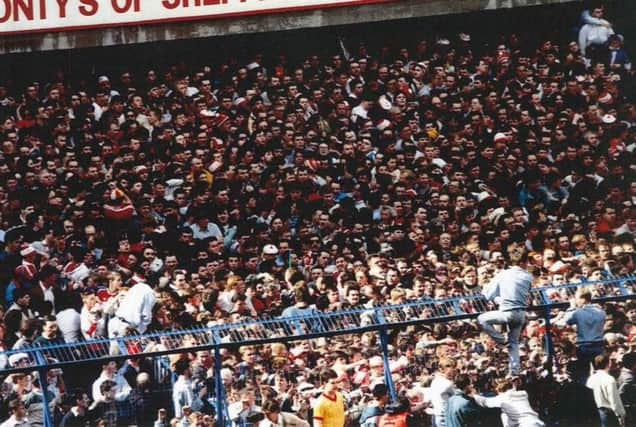Police watchdog aims to persuade Hillsborough witnesses who won't cooperate


Earlier this month the Independent Police Complaints Commission (IPCC) said 19 individuals had declined to make a statement to their investigators who were examining West Midlands Police’s role after the 1989 tragedy.
Operation Resolve, the criminal investigation into the planning for the FA Cup semi-final and the day of the disaster, has previously disclosed that 64 people had refused to speak to them as part of their inquiries.
Advertisement
Hide AdAdvertisement
Hide AdIn her latest inquiry update, IPCC deputy chair Rachel Cerfontyne said it was important to note the majority of those approached to help had done so, with more than 13,000 statements recorded across both inquiries.
She added that more than 100,000 documents had been gathered and examined, together with hundreds of hours of AV footage, as part of “extensive analytical work”.
Advertisement
Hide AdAdvertisement
Hide AdHillsborough, Rotherham, Orgreave and the Rhino Whip Affair: Five police scandals in South Yorkshire
She said: “This has helped us to develop an in-depth working knowledge of what happened at Hillsborough. If we believe any of those who have declined could significantly enhance the investigations, we will continue to persuade them to engage with us.”
Ms Cerfontyne reiterated the aim of the IPCC probe - examining police actions in the aftermath of the disaster - and Operation Resolve was to conduct investigations that are as thorough as possible.
“To that end, we have spoken to as many police and non-police witnesses as possible,” she said.
Advertisement
Hide AdAdvertisement
Hide Ad“Some have decided not to assist to us, citing a variety of reasons.
“National legislation means that no investigation has the power to force witnesses, whether they are police officers or members of the public, to give accounts.”
Elsewhere, the IPCC said its work to contact West Midlands Police (WMP) officers and staff who worked on the force’s Hillsborough inquiry was “almost complete” and that it believed it had “a good knowledge” of how WMP gathered and handled evidence.
An investigation team of WMP was tasked with investigating South Yorkshire Police (SYP) officers’ conduct for the initial independent inquiry led by Lord Chief Justice Taylor, the Director of Public Prosecutions (DPP) and the South Yorkshire Coroner.
Advertisement
Hide AdAdvertisement
Hide AdIn other developments, a team reviewing AV footage relating to the disaster is to examine audio from South Yorkshire Police officers’ radios that was transmitted between 6pm and midnight on April 15 1989.
Their research will look at whether this can support any ongoing lines of inquiry into the alleged cover-up.
The IPCC is also trying to establish whether there was any “common knowledge” among some of the inspectors who policed FA Cup semi-finals at Hillsborough.
It is attempting to ascertain whether there were any strategies to manage the Leppings Lane terraces, in particular the tunnels leading to the central pens and any cordons and filters that were put in place.
Advertisement
Hide AdAdvertisement
Hide AdThe IPCC said a complaint received on behalf of a number of Hillsborough families about suspended South Yorkshire Police chief constable David Crompton and the force’s actions during the fresh inquests had now been referred back from the SYP Police and Crime Commissioner’s Office.
It said it was conducting an assessment of all available information before deciding what course of action to take.
The watchdog added it was continuing to liaise closely with the Crown Prosecution Service to analyse whether any of the documentation relating to policing at the Orgreave coking plant during the miners’ strike was of any relevance to its line of inquiries into Hillsborough.
Both the IPCC and Operation Resolve investigation teams are due to pass on full files of evidence to the CPS by the end of the year.
In April, an inquest jury concluded the 96 victims were unlawfully killed and that blunders by South Yorkshire Police “caused or contributed to” the disaster at Sheffield Wednesday FC’s stadium.